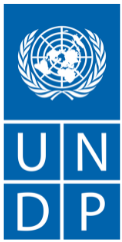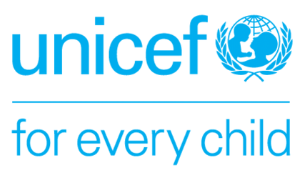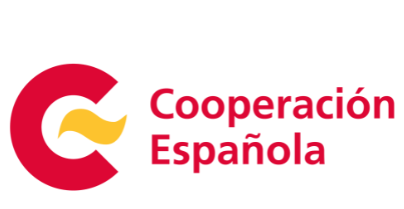On the sidelines of the Fifth United Nations Conference on the Least Developed Countries (LDC5), the INFF Facility hosted an event to discuss how integrated national financing frameworks (INFFs) are helping LDCs unlock investments for LDC graduation, the SDGs and the objectives of the Paris Agreement.
We were fortunate to be joined by H.E. Mr. Ilyas Moussa Dawaleh, Djibouti Minister of Economy and Finance, at the INFF Facility side event. At the event, the Minister shared his experience on the country's financing challenges, the value of the INFF process, and emphasized the importance of private sector involvement and aid quality improvement for long-term implementation and LDC graduation.
We are sharing his speech in full, edited for clarity, below. You can also find the presentation here.
It is a pleasure to be with you today on this occasion. And thank you to the UNDP team with whom we have been talking, and more generally with the United Nations system in Djibouti for excellent relations for the past few years. I have seen the Resident Coordinator he is in the room and we rightly appreciate the collaborative work that we have had for some time, for a long time.
With regard to the INFF exercise, I wanted to very quickly before going to the slide, give maybe a very brief history on how it came about in relation to Djibouti.
Like in many countries, we experienced Covid in a very difficult way. And, Covid arrived near the end of our first five-year plan called SCAPE, Strategy for Accelerated Growth and Employment in the Republic of Djibouti. We were working on the new five-year plan called Djibouti ICI. The first I for inclusion, with C for connectivity and the second I is for institutions. These are really the three fundamental pillars of our five-year plan that we were preparing, with cross-cutting priorities, notably human capital, on climate change, but also on digital.
While we were in the process of preparing this plan, the second of its generation, the pandemic arrived. We also experienced other crises. Before the Ukraine crisis, we experienced several other crises, one of which is regional, namely instability and, in particular, conflicts inside Ethiopia, but also other conflicts in the Horn of Africa, particularly in Somalia. And at the same time as Covid, we also experienced an extremely acute drought with climate change and its consequences.
We had to start all over again with these different challenges and ensure that we had rapid responses to the pandemic, but also to provide an answer to all the other challenges. So that's what we tried to do and meanwhile, we were on our way to graduate from the LDC category. We are part of these five countries that are expected to graduate from LDC in the coming years.
Graduating from LDC with all these challenges, but also dealing with all these crises we were experiencing in the last ten years. Our GDP tripled, with a 200 billion Djiboutian Francs increase since 2011. Ten years ago, our GDP was about 220 billion Djiboutian Francs (USD 1.5 billion). In 2021, 2020, at least considering only the period before Covid, FN 610 billion Djiboutian Francs. So the GDP tripled.
But all these efforts and all the gains during these ten years were put on pause by these various crises and in particular by the Covid crisis. And of course, a little later on, with regard to Ukraine. How to finance while resources were becoming scarce and this is much more true now with this global geopolitical crisis. Unfortunately, we can see this.
We got a breath of fresh air with the solution that was presented by the G20. Earlier, someone was talking about the G20 and the moratorium. For us, we ended up with this moratorium in another debt crisis. I think Mr. Achim was talking earlier about the debt crisis. We were experiencing a vulnerability in terms of financing our debt, of servicing our debt, and this vulnerability accelerated after the two-year moratorium ended.
Djibouti, like many other countries, saw its debt service triple all of a sudden. Knowing that we were going to resume the payment of our debts, but at the same time, resources were running out. We had to imagine a financing model, and that's where we really found this approach, the INFF, extremely useful, because not only did we learn a lot about potential financing solutions, including resources to be mobilized domestically, but we also learned about the reality of our existing resources. Notably, we learned that during the last ten years, all the financing linked to Djibouti's rapid development growth and this threefold increase in GDP in ten years was primarily funded by domestic resources, from savings.
It was not funded by development funding, among other things. It was not financed only by debt. Because the narrative around Djibouti was that a lot of the financing of infrastructure came mainly, among others, from China, for example. And this proved that the resources, a lot of the financing for structural projects came from local resources. But these local resources were not sufficient. And the INFF enabled us, among other things, to discover in terms of capacity.
We discovered our own gaps with the INFF exercise, in terms of coordination. I am the Minister of Finance, but very strangely, at least compared to many countries, the Ministry of the Budget is rather independent. It is not under the Ministry of Finance, even if we have a working relationship. We saw, among other things, our shortcomings in terms of coordination. We also saw our shortcomings in terms of management, due to, among other things, a lack of coherence of public policies more generally.
So we developed other instruments, always with UNDP and the UN system. When I talk about UNDP, I must not be misunderstood by UNICEF because it is a joint exercise, but with the leadership of UNDP. So we did all this work for the last two years.
We also calculated the needs we had in terms of financing. We know today exactly what kind of financing we need and for what sector. We also know with the INFF, what are the capacities to be mobilized in terms of resources from the private sector and especially financing in relation to the SDGs, since all of this is linked. This is roughly the exercise we undertook over these last years with the INFF.
And then other instruments were naturally imposed on us, among others. In the process, we developed, and this time with the World Bank, the PEFA exercise that we never undertook. It is the public finance performance diagnosis of public finances to overcome very specific shortcomings of public financial management. Because the INFF showed us the importance of better governance, more transparency in the management of financial resources for development.
We have developed another tool, and I think that in Africa we are among the first with UNDP's private sector platform in Istanbul, IICPSD (International Center for Private Sector in Development). It's a bit complicated as a name. But it is the platform that is responsible for promoting the private sector in developing countries. A very good institution with whom we worked to complete the first SDG Investor Map. Exactly to also try to mobilize the necessary resources from the private sector, domestic resources, in strategic sectors, which we consider to have great potential for development and transformation.
And the lessons learned from the exercise is we now look much more seriously in creating the right environment in terms of collaboration, promoting private sector as the number one investment vehicle, as the engine to drive the investment. And at the same time to work on increasing aid quality and coordination, to make sure that such aid continues to arrive in Djibouti.
Now, I take advantage of the presence of the UNDP Administrator and the entire management team. Now that we have all these exercises, there is a lot of work that has been completed with your teams. Now it's about implementation. How now to implement in the medium and long term so that from now on we can very effectively and very seriously graduate from the LDCs, as we are planning to do.
More resources in terms of capacity, in terms of support for the implementation of everything that has been done during these long years and we also call on partners to increase efforts and resource mobilization.
Thank you.












.png)


